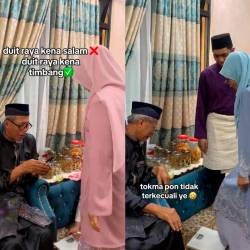Cuban authorities break up dissidents' hunger strike in Havana
HAVANA, Nov 27 (Reuters) - Cuban authorities broke up a protest by a group of dissident artists, academics, journalists and activists late on Thursday by evicting them from their headquarters where they had declared a hunger strike against curbs on civil liberties.
Authorities said they had to intervene due to violations of hygiene protocols to prevent coronavirus spread. The group said this was an "absurd" pretext for ending a protest that shone a spotlight on rights abuses in the one-party state.
"They entered by force, breaking the door," said independent journalist Iliana Hernandez in a video livestreamed on Facebook. "Many military people as if they were doctors wearing gowns."
Hernandez said police had detained her and others before taking them to their homes. Around an hour after midnight, the group said three of the 14 detained were still out of contact.
The San Isidro Movement had been little known before it publicized the protest on social media, uniting Cuba's normally fractious opposition groups in sympathy and drawing criticism of authorities by human rights group such as Amnesty International.
The movement was founded in 2018 to oppose a new decree limiting freedom of speech, often through irreverent artistic performances, and it has had numerous run-ins with Cuba's Communist authorities that frown on public dissent.
After group members protested against an eight-month jail sentence for rapper Denis Solis on charges of contempt, security forces besieged its headquarters earlier this month.
Eight members and supporters of the movement then declared a hunger strike and said some were not drinking water either. Reuters could not independently verify this as security forces blocked access to the premises.
Coming amid Cuba's worst economic crisis since the fall of the Soviet Union, the events have galvanized some Cubans who usually shy away from talking politics to criticize the government's handling of the situation.
Prominent Cuban artists like musicians Carlos Varela and Haydee Milanes and filmmakers Carlos Lechuga and Claudia Calvino called for the government to show tolerance.
"We called for dialogue," Milanes wrote on Facebook on Thursday night. "We have not been listened to."
The activists who had already been freed on Thursday night vowed to keep on fighting. "Denis Solis remains imprisoned," critically acclaimed writer Carlos Manuel Alvarez wrote on Facebook. "We cannot leave him alone."
The government said it was the fact Alvarez joined the strikers without notifying authorities of his change of address shortly after arriving in the country from the United States that prompted it to take action on Thursday.
A member of the San Isidro Movement, Michel Matos, said if it were truly worried about coronavirus, it would not have simply allowed him and most the others to go home.
The government says dissidents are mercenaries seeking to destabilize Cuba and earlier this week state-run media published articles calling the strike a show orchestrated from Miami and Washington. (Reporting by Sarah Marsh; editing by Philippa Fletcher)






